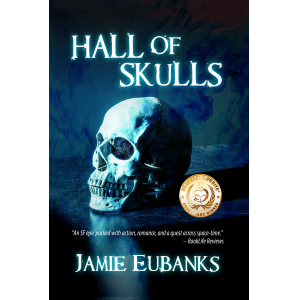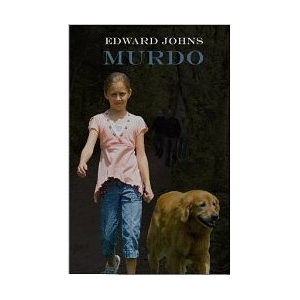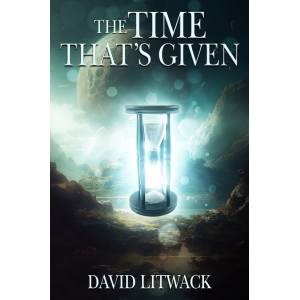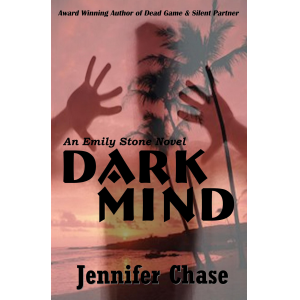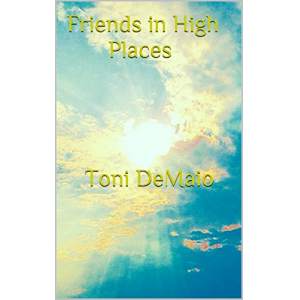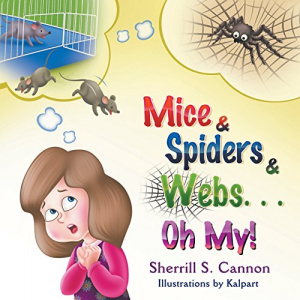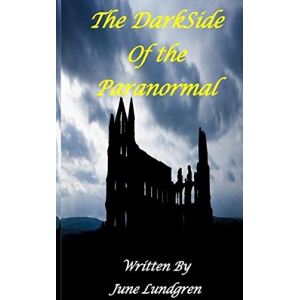- Author
- Book
- Story behind the book
- Media Links
- Reviews

John Allen
About
Email: john@johnallenbooks.com
John Allen has written more than twenty books in a variety of genre: fiction, non-fiction, mainstream political, historical romance, environmental and fantasy. Two of his titles have movie contracts with London-based Hourglass Productions, and John recently completed editing MJ Maher's groundbreaking Racism and Cultural Diversity, due for release by Karnac (London) in Sep.2011.
All the author's books are now available in Kindle format.
Brine projects the results of sea level rise over the next 40 years. After the 2010 Vendée tragedy, France acknowledged that millions are at risk and is redrawing its coastline map. What's ahead as we run out of living space on the planet? Chaos? Waterworld?
Recognising that 'we do not inherit the planet from our parents: we borrow it from our children', Brine deals with the most critical problem of our age.
Filigree. Emotionally adrift following a disastrous marriage, Elna forges an intimate relationship with a woman she previously considered 'just a friend'. Filigree tracks the meltdown after surreal dreams and all-too-real nightmares take their toll.
Concerning the Nature of Man has prompted interesting mail for many years, and Robert Pirsig (Zen and the Art of Motorcycle Maintenance, Lila) wrote to say he too, in his own books, has always considered the theme of Static and Dynamic Quality within the history of religion one of the most important.
CNM, which is also available in French, continues to be a respected work on this divisive subject.
Apartheid South Africa is considered by top Amazon reviewer QRA 'a unique firsthand-knowledge account...an important addition to any serious reader about southern Africa.' It is an authoritative source for student research on South Africa at Troy High School, California, and Philippe Willems, associate professor of French and cultural historian at Northern Illinois Univ. says it may well be the top contemporary reference on the subject. 'Rarely have I got so much information from one book...re-readings will be necessary...I have a copy on order for my university's library.'
The Islander has received numerous rave reviews from Amazon's top 50 critics, and in additional media comment, BJ Deese critiqued for Romance Junkies, Tara Rogan interviewed John for Love Romances magazine and Angela Becerra hosted a special for WOAI television.
The Carpentier Diaries is the complete account of the Carpentier cousins' struggle to retain their island inheritance. The trilogy begins with Maximilienne (1855-1877), whose diary, published in 2004 as The Islander, attracted so much media attention in the US (see above). It concludes with Emilie's very frank account of her life, loves and confessions.
Hipper Crit, which represents the mainstream of young adult fantasy, will be enjoyed by all lovers of the Narnia series and Lord of the Rings fans. It has also been translated into French.
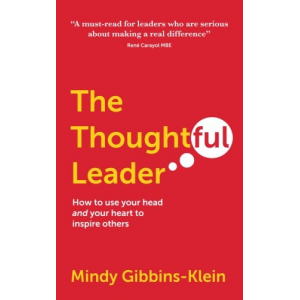
The Thoughtful Leader: How to use your head and your heart to inspire others
Description
<p>Is it time for leaders to think more deeply and more effectively?<br /><br />Tired of people throwing the term 'thought leadership' around and using it to label unexceptional people and mediocre content, Mindy Gibbins-Klein sets out to define and introduce a new paradigm and a new standard of idea generation and sharing.<br /><br />Thoughtful leaders exhibit exceptional thinking as well as consideration for others. It is the thoughtful leader who will introduce a new era - a more thoughtful era.<br /><br />This brave book inspires, encourages and teaches Real thought leaders a new way of thinking and behaving.<br /><br />- Reach beyond content marketing and thought leadership<br />- Achieve greater levels of thinking<br />- Discover hidden depths within yourself<br />- Become a true Thoughtful Leader</p>
Story Behind The Book
Although British-born, John Allen lived in South Africa from 1954 to 1990, a 36-year period during which the country experienced its most climactic – and sometimes terrible – events. Speaking from firsthand knowledge and with an intimate understanding of the situation, the author takes us beyond the media hype that so dominated Western television screens to answer some of the most vital questions concerning the apartheid era: Who originated the system of government the world grew to hate so much? Was South Africa the only ‘apartheid’ nation? Did economic sanctions have the desired effect? How did Washington’s domestic agenda affect US foreign policy? What was the West’s real motive in forcing the country to its knees? Why did Nelson Mandela’s release from prison increase rather than diminish violence? Apartheid South Africa addresses these and a host of other issues, bringing to light little-known facts concerning historical detail and providing the reader with eyewitness accounts of day-to-day life in one of the most dangerous countries in the world.
Media Links
Reviews
<div style="margin-bottom:.5em;"> </div> <div style="margin-bottom:.5em;"><span style="margin-right:5px;"><span class="swSprite s_star_4_0"><span>4.0 out of 5 stars</span></span> </span><span style="vertical-align:middle;"><strong>In-depth view of separate development (apartheid)</strong>, June 2, 2009</span> </div> <div style="margin-bottom:.5em;"> <table cellspacing="0" cellpadding="0" border="0"><tbody><tr><td valign="top">By </td> <td><a href="http://www.amazon.com/gp/pdp/profile/A5D60XHDRD9OC/ref=cm_cr_dp_pdp"><span style="font-weight:bold;"><span style="white-space:nowrap;"><font color="#003399">QBA<span class="swSprite s_chevron custPopRight"></span></font></span></span></a> (Toronto, On, Canada) - <a href="http://www.amazon.com/gp/cdp/member-reviews/A5D60XHDRD9OC/ref=cm_cr_dp_auth_rev?ie=UTF8&sort_by=MostRecentReview">See all my reviews</a></td></tr></tbody></table></div> <div class="tiny" style="margin-bottom:.5em;"><strong><span class="h3color tiny"><font color="#e47911">This review is from: </font></span><a href="http://www.amazon.com/Apartheid-South-Africa-Insiders-Development/dp/0595672329/ref=cm_cr_dp_orig_subj"><font color="#003399">Apartheid South Africa: An Insider's Overview of the Origin and Effects of Separate Development (Hardcover)</font></a></strong> </div>This is an in-depth view of separate development (apartheid), that you won't usually get out of the main stream media. The author takes us on a tour of South Africa from his arrival as a child and his interaction with the Afrikaans culture all throughout adult hood. His firsthand experience gives us a better understanding of the social and political dynamics of the time. <br /><br />The book starts with a much needed chronological list of the racial discrimination laws that most people are oblivious to, were actually initiated, implemented and reinforced by the British government in South Africa from 1892 until 1946 and continued by the Afrikaans National Party government in 1949 under the name of separate development mostly known by its Afrikaans translation as apartheid. <br />The author tries to give us a somewhat balanced description of the suffering of the black population both by their subjugation from the National Party government under apartheid and also by the lesser publicized barbaric and cruel acts committed by blacks on their fellow blacks. The latter actions were so savage and brutal that they can only be labeled as acts of terrorism, such as amputations of limbs, torture and the infamous necklacing where a gasoline soaked tire was slung around the victims neck and set alight by members and sympathizers of the Marxist ANC (African National Congress); they also planted bombs targeting innocent civilians. Their leader was none other than Nelson Mandela. <br /><br />Even though the book is well balanced overall, I would like to critique three arguments presented by the author: <br /><br />1-) He claims that the National Party government didn't want peace because they were fighting the Communists in Angola. I don't think the National Party had much of a choice than to fight the communist intervention in Angola. MPLA was allowing SWAPO to create military bases in Angola; they were trained and equipped by Cuba, East Germany and other communist countries, to launch incursions into South West Africa (Namibia). Plus, the South African government could clearly see the pattern of Marxist trained guerrillas destabilizing the African continent and installing one party communist dictatorship under the flag of "liberation". They saw the chaos, hunger and repression in neighbouring countries like Mozambique with Samora Machel, Zimbabwe with Robert Mugabe, and others like Ethiopia with Mengistu Haile Mariam. The South Africans and UNITA defeated militarily the Cubans-MAPLA in Angola with their Soviet logistical support. By doing so, they avoided the violent transition to majority rule, saving them selves from suffering the same fate as the rest their neighbouring countries. <br /><br />2-) The author also alleges that the National Party used propaganda to create the perception that the ANC wanted to take down the National Party government by violence means. By doing so, the author is showing his naivete toward Mandela and the ANC's real agenda during this period. The ANC's main goal was to defeat the government by armed struggle, civil violence and disobedience. Consequently, the organization trained and equipped its fighters in neighbouring countries. Their Marxist instructors always kept their military training hand in hand with their ideology, but after many years without real results and the clear decline of the Soviet block in the early 90's, they finally came to the realization that they weren't able to defeat such a powerful and well-trained army as the SADF (South Africa Defence Forces); therefore, the ANC was resigned to the realization that the changes in South Africa were going to happen as an evolutionary process into a democratic society rather than as a violent revolutionary one leading to a Marxist totalitarian regime. <br /><br />3-) He also makes reference to the trial of General Magnus Malan and other members of the Defence forces' top echelons of power, without giving the specifics of the fairness of the charges. The trial was proven to be nothing more than an ANC strategy to damage the image of the SADF. The ANC was trying to connect the SADF's leadership with an act of violence committed by some members of the Inkatha-aligned Zulus who were trained by the SADF to provide security to the Chief Minister of the KwaZulu homeland and other important persons - mostly members of the Inkatha. During this period, members of the Inkatha were being frequently assassinated by their political rival the ANC. The witnesses were proven by the court to have fabricated their stories and Magnus Malan and the rest of the officers were acquitted of all charges. Their then President Nelson Mandela didn't have other choice but to publicly accept the decision of the courts. In the same manner, I don't quite understand how the author interpreted Malan's words in the trial, "I'm a Christian, a Democrat and a reformist" as a sign of someone that is a racist and doesn't feel any remorse. <br /><br />Further reading is needed to have an overall picture without falling victim to some of the author's naive dismissals of the seriousness of the communist threat that was hovering over South Africa during the cold war era and his understandable but sometimes unfounded prejudice with anything that belonged to the old regime. <br /><br />Apartheid was an unsustainable and unjust practice; there is much misinformation and many misconceptions in the west about the reality of South Africa during that era and I recommend this book because it is well researched and provided a unique firsthand knowledge account, making it an important addition to any serious reader about Southern Africa.<br /><br /><p class="MsoNormal" style="margin:0in 0in 0pt;text-indent:.5in;line-height:14.4pt;text-align:center;" align="center"><span style="text-decoration:underline;"><span style="color:#333333;"><font size="3"><span style="font-family:'Times New Roman';"><br />Interview with A.S, sophomore,<strong></strong>Troy High School, Fullerton, California<br /></span></font></span></span><span style="color:#333333;"><font size="3"><span style="font-family:'Times New Roman';">Nov.2008<strong></strong></span></font></span></p> <p></p> <p class="MsoNormal" style="margin:0in 0in 0pt;text-indent:.5in;line-height:14.4pt;text-align:justify;"><strong><span style="color:#333333;"><font size="3"><span style="font-family:'Times New Roman';"></span></font></span></strong> </p> <p></p> <p class="MsoNormal" style="margin:0in 0in 0pt;text-indent:.5in;line-height:14.4pt;text-align:justify;"><strong><span style="color:#333333;"><font size="3"><span style="font-family:'Times New Roman';">How would you say that apartheid affected you while you were living in <span class="yshortcuts">South Africa</span>?</span></font></span></strong></p> <p></p> <p class="MsoNormal" style="margin:0in 0in 0pt;text-indent:.5in;line-height:14.4pt;text-align:justify;"><span style="color:#333333;"><font size="3"><span style="font-family:'Times New Roman';"></span></font></span> </p> <p></p> <p class="MsoNormal" style="margin:0in 0in 0pt;text-indent:.5in;line-height:14.4pt;text-align:justify;"><span style="color:#333333;"><font size="3"><span style="font-family:'Times New Roman';">When our family first arrived in the country, my brother and I hardly noticed the difference between where we’d come from (Kingston-on-Thames, England) and where we settled (Florida, Transvaal). We lived in a ‘whites-only’ neighbourhood, but I didn’t know (at the tender age of eight) that it was one, and the next ten years or so were pretty idyllic. (Bear in mind that in the 1950s and 1960s, South African whites had just about the highest standard of living in the world.)</span></font></span></p> <p></p> <p class="MsoNormal" style="margin:0in 0in 0pt;text-indent:.5in;line-height:14.4pt;text-align:justify;"><span style="color:#333333;"><font size="3"><span style="font-family:'Times New Roman';">As kids, we knew next to nothing about the discrimination going on among the black population because the country was media-dead, so our sole contact with any blacks was when they worked for us in our home. As I relate in my book, it was only when one such ‘maid’, Rosy, began answering my tentative questions that the light began to dawn, but that was years after we arrived.</span></font></span></p> <p></p> <p class="MsoNormal" style="margin:0in 0in 0pt;text-indent:.5in;line-height:14.4pt;text-align:justify;"><span style="color:#333333;"><font size="3"><span style="font-family:'Times New Roman';"></span></font></span> </p> <p></p> <p class="MsoNormal" style="margin:0in 0in 0pt;text-indent:.5in;line-height:14.4pt;text-align:justify;"><strong><span style="color:#333333;"><font size="3"><span style="font-family:'Times New Roman';">What is your opinion on the scandal-ridden events of the last election?</span></font></span></strong></p> <p></p> <p class="MsoNormal" style="margin:0in 0in 0pt;text-indent:.5in;line-height:14.4pt;text-align:justify;"><span style="color:#333333;"><font size="3"><span style="font-family:'Times New Roman';"></span></font></span> </p> <p></p> <p class="MsoNormal" style="margin:0in 0in 0pt;text-indent:.5in;line-height:14.4pt;text-align:justify;"><span style="color:#333333;"><font size="3"><span style="font-family:'Times New Roman';">I left South Africa in 1990, so cannot give an in-depth or authoritative opinion about events subsequent to that date. Sufficient to say that America knows enough about scandal-ridden elections to understand how, and why, they happen.</span></font></span></p> <p></p> <p class="MsoNormal" style="margin:0in 0in 0pt;text-indent:.5in;line-height:14.4pt;text-align:justify;"><span style="color:#333333;"><font size="3"><span style="font-family:'Times New Roman';"></span></font></span> </p> <p></p> <p class="MsoBodyText" style="margin:0in 0in 0pt;text-indent:.5in;text-align:justify;"><strong><font size="3"><font color="#333333"><span style="font-family:'Times New Roman';">How much did your life change after the lift of apartheid? Was it a physical change, or a psychological one?</span></font></font></strong></p> <p></p> <p class="MsoBodyText" style="margin:0in 0in 0pt;text-indent:.5in;text-align:justify;"><font size="3"><font color="#333333"><span style="font-family:'Times New Roman';"></span></font></font> </p> <p></p> <p class="MsoBodyText" style="margin:0in 0in 0pt;text-indent:.5in;text-align:justify;"><font face="Times New Roman" color="#333333" size="3">I left within months of the lifting of apartheid, so cannot say too much about a change in my life, but as for the initial psychological effect, I well recall hearing on my car radio that Mandela had been released from prison. It was mind-blowing. We’d all been told he was public enemy number one, so this was something huge that was happening, and combined with the un-banning of the ANC, everyone was in a sort of mental turmoil. As a comparison that might help Americans understand better, imagine if bin Laden had been arrested and jailed, and then released by presidential pardon from Guantanamo at the same time as the US government legalized el Quaida. Well, among South African whites, the psychological effect of Mandela’s release and the ANCs un-banning was as shattering as that. Frankly, it was unbelievable. We were all dazed. It felt to many as if the government had sold the country up the river.</font></p> <p class="MsoBodyText" style="margin:0in 0in 0pt;text-indent:.5in;text-align:justify;"><font size="3"><font color="#333333"><span style="font-family:'Times New Roman';"></span></font></font> </p> <p></p> <p class="MsoNormal" style="margin:0in 0in 0pt;text-indent:.5in;line-height:14.4pt;text-align:justify;"><strong><span style="color:#333333;"><font size="3"><span style="font-family:'Times New Roman';">What do you think of the lives of the caucasian minority today, as compared with those during the apartheid system?</span></font></span></strong></p> <p></p> <p class="MsoNormal" style="margin:0in 0in 0pt;text-indent:.5in;line-height:14.4pt;text-align:justify;"><span style="color:#333333;"><font size="3"><span style="font-family:'Times New Roman';"></span></font></span> </p> <p></p> <p class="MsoNormal" style="margin:0in 0in 0pt;text-indent:.5in;line-height:14.4pt;text-align:justify;"><span style="color:#333333;"><font size="3"><span style="font-family:'Times New Roman';">As above, I cannot say firsthand, but since I’m preparing a ‘Southern African Updates’ addition to <em>Apartheid South Africa</em> for the next reprint, I am aware that the poverty of the majority has been shared quite liberally with the minority white population. Except for the very rich of all colors, life is, I gather, tough for everyone, and with unemployment ranging between 25% and 40%, the outlook isn’t too cheerful.</span></font></span></p> <p></p> <p class="MsoNormal" style="margin:0in 0in 0pt;text-indent:.5in;line-height:14.4pt;text-align:justify;"><span style="color:#333333;"><font size="3"><span style="font-family:'Times New Roman';"></span></font></span> </p> <p></p> <p class="MsoNormal" style="margin:0in 0in 0pt;text-indent:.5in;line-height:14.4pt;text-align:justify;"><strong><span style="color:#333333;"><font size="3"><span style="font-family:'Times New Roman';">How did you feel about the racial tension during the apartheid system? After its ban?</span></font></span></strong></p> <p></p> <p class="MsoNormal" style="margin:0in 0in 0pt;text-indent:.5in;line-height:14.4pt;text-align:justify;"><span style="color:#333333;"><font size="3"><span style="font-family:'Times New Roman';"></span></font></span> </p> <p></p> <p class="MsoNormal" style="margin:0in 0in 0pt;text-indent:.5in;line-height:14.4pt;text-align:justify;"><span style="color:#333333;"><font size="3"><span style="font-family:'Times New Roman';">When I was eighteen our family moved to Cape Town, and from then on I was well aware of racial tension, but not only between black and white. Whites, divided into English- and Afrikaans- speaking factions, rarely mixed and usually lived in separate communes, and there was almost as much tension between them as there was between the black/colored/Indian/white mix. Also, there was the centuries-old ethnic tension between blacks themselves (Zulu/Xhosa, for instance). This complex area is well-documented in my book.</span></font></span></p> <p></p> <p class="MsoNormal" style="margin:0in 0in 0pt;text-indent:.5in;line-height:14.4pt;text-align:justify;"><span style="color:#333333;"><font size="3"><span style="font-family:'Times New Roman';">As to my personal feelings, I couldn’t blame anyone for being resentful because they were treated badly because of their color – apartheid had always seemed unfair to me, and since I usually said what I thought before thinking about what I was saying, I had very few Afrikaner friends.</span></font></span></p> <p></p> <p class="MsoNormal" style="margin:0in 0in 0pt;text-indent:.5in;line-height:14.4pt;text-align:justify;"><span style="color:#333333;"><font size="3"><span style="font-family:'Times New Roman';"><span></span></span></font></span> </p> <p></p> <p class="MsoNormal" style="margin:0in 0in 0pt;text-indent:.5in;line-height:14.4pt;text-align:justify;"><strong><span style="color:#333333;"><font size="3"><span style="font-family:'Times New Roman';">Would you say that the general public in South Africa trust or distrust their government?</span></font></span></strong></p> <p></p> <p class="MsoNormal" style="margin:0in 0in 0pt;text-indent:.5in;line-height:14.4pt;text-align:justify;"><span style="color:#333333;"><font size="3"><span style="font-family:'Times New Roman';"></span></font></span> </p> <p></p> <p class="MsoNormal" style="margin:0in 0in 0pt;text-indent:.5in;line-height:14.4pt;text-align:justify;"><span style="color:#333333;"><font size="3"><span style="font-family:'Times New Roman';">When I was there, only the Afrikaners trusted the government, because they were the only ones who’d voted it into power. The English-speaking population trusted Pretoria as little as every other group, which was not at all.</span></font></span></p> <p></p> <p class="MsoNormal" style="margin:0in 0in 0pt;text-indent:.5in;line-height:14.4pt;text-align:justify;"><span style="color:#333333;"><font size="3"><span style="font-family:'Times New Roman';"></span></font></span> </p> <p></p> <p class="MsoNormal" style="margin:0in 0in 0pt;text-indent:.5in;line-height:14.4pt;text-align:justify;"><strong><span style="color:#333333;"><font size="3"><span style="font-family:'Times New Roman';">What effects did the disappointments of post-apartheid South Africa have on the present-day social and political atmosphere?</span></font></span></strong></p> <p></p> <p class="MsoNormal" style="margin:0in 0in 0pt;text-indent:.5in;line-height:14.4pt;text-align:justify;"><strong><span style="color:#333333;"><font size="3"><span style="font-family:'Times New Roman';"></span></font></span></strong> </p> <p></p> <p class="MsoBodyText" style="margin:0in 0in 0pt;text-indent:.5in;text-align:justify;"><font face="Times New Roman" color="#333333" size="3">I wasn’t there post-apartheid for any length of time, so can’t offer an objective opinion.</font></p> <p class="MsoNormal" style="margin:0in 0in 0pt;text-indent:.5in;line-height:14.4pt;text-align:justify;"><span style="color:#333333;"><font size="3"><span style="font-family:'Times New Roman';"></span></font></span> </p> <p></p> <p class="MsoNormal" style="margin:0in 0in 0pt;text-indent:.5in;line-height:14.4pt;text-align:justify;"><strong><span style="color:#333333;"><font size="3"><span style="font-family:'Times New Roman';">How did the end (or the means to the end) of the apartheid system affect the amount of foreign aid and empathy to South Africa?</span></font></span></strong></p> <p></p> <p class="MsoNormal" style="margin:0in 0in 0pt;text-indent:.5in;line-height:14.4pt;text-align:justify;"><strong><span style="color:#333333;"><font size="3"><span style="font-family:'Times New Roman';"></span></font></span></strong> </p> <p></p> <p class="MsoBodyText" style="margin:0in 0in 0pt;text-indent:.5in;text-align:justify;"><font face="Times New Roman" color="#333333" size="3">I know from contact with people of all races in South Africa that they felt pretty much let down by the international community after Mandela was elected. He’d promised his own people millions of homes, for instance, and had based this guarantee on promised foreign aid, yet very little actually arrived and consequently few houses were built. As for empathy, it was apartheid that generated it, so once the political structure went, much of the empathy went too. It’s important to remember that apartheid was a convenient whipping post (and therefore media diversion) for many other countries where apartheid was practised but never labelled. The chapter <em>The Trail of Tears</em> deals with this in great detail.</font></p> <p class="MsoNormal" style="margin:0in 0in 0pt;text-indent:.5in;line-height:14.4pt;text-align:justify;"><span style="color:#333333;"><font size="3"><span style="font-family:'Times New Roman';"></span></font></span> </p> <p></p> <p class="MsoNormal" style="margin:0in 0in 0pt;text-indent:.5in;line-height:14.4pt;text-align:justify;"><font size="3"><span style="font-family:'Times New Roman';"><strong><span style="color:#333333;">What do you think were the main effects apartheid had on the social and political atmosphere today?</span></strong><span style="color:#333333;"></span></span></font></p> <p></p> <p class="MsoNormal" style="margin:0in 0in 0pt;text-indent:.5in;line-height:14.4pt;text-align:justify;"><strong><span style="color:#333333;"><font size="3"><span style="font-family:'Times New Roman';"></span></font></span></strong> </p> <p></p> <p class="MsoBodyText" style="margin:0in 0in 0pt;text-indent:.5in;text-align:justify;"><font face="Times New Roman" color="#333333" size="3">Fear and mistrust were always the main effects of apartheid, and this will take decades to simmer down into something more rational. We had the prospect of black aggression drummed into us from our mid-school years, and this made everyone a bit paranoid and trigger-happy. A look at the rest of southern Africa at that time didn’t help either, but again, this is well-documented in my book.</font></p> <p class="MsoNormal" style="margin:0in 0in 0pt;text-indent:.5in;line-height:14.4pt;text-align:justify;"><span style="color:#333333;"><font size="3"><span style="font-family:'Times New Roman';"></span></font></span> </p> <p></p> <p class="MsoNormal" style="margin:0in 0in 0pt;text-indent:.5in;line-height:14.4pt;text-align:justify;"><strong><span style="color:#333333;"><font size="3"><span style="font-family:'Times New Roman';">Today, the focus of the media and the international community is more on South Africa's <span class="yshortcuts">high crime rates</span>, suicides, etc. than on racial imbalance or injustice. Do you think this should be so?</span></font></span></strong></p> <p></p> <p class="MsoNormal" style="margin:0in 0in 0pt;text-indent:.5in;line-height:14.4pt;text-align:justify;"><strong><span style="color:#333333;"><font size="3"><span style="font-family:'Times New Roman';"></span></font></span></strong> </p> <p></p> <p class="MsoBodyText" style="margin:0in 0in 0pt;text-indent:.5in;text-align:justify;"><font face="Times New Roman" color="#333333" size="3">No, but since the media works on the basis of ‘if it bleeds, it leads’, this is what they’ll report. In truth, it’s a cause and effect situation: it was the racial imbalance and injustice that produced a militant black society that was prepared to kill, and also die for, the right to vote and be treated as human beings, and the current high crime rates etc. are simply the continuation of that philosophy set against the backdrop of unfulfilled expectations. Since it’s assumed by the international community that the collapse of apartheid ushered in racial equity, what else can the media talk about other than whatever’s left – high crime rates and suicides? They can hardly start critizing the party they helped into power.</font></p> <p class="MsoNormal" style="margin:0in 0in 0pt;text-indent:.5in;line-height:14.4pt;text-align:justify;"><span style="color:#333333;"><font size="3"><span style="font-family:'Times New Roman';"></span></font></span> </p> <p></p> <p class="MsoNormal" style="margin:0in 0in 0pt;text-indent:.5in;line-height:14.4pt;text-align:justify;"><strong><span style="color:#333333;"><font size="3"><span style="font-family:'Times New Roman';">Before the tumultuous events leading up to and following the ban on the apartheid system, what did you believe to be the greatest political and social issues facing South Africa?</span></font></span></strong></p> <p></p> <p class="MsoNormal" style="margin:0in 0in 0pt;text-indent:.5in;line-height:14.4pt;text-align:justify;"><strong><span style="color:#333333;"><font size="3"><span style="font-family:'Times New Roman';"></span></font></span></strong> </p> <p></p> <p class="MsoBodyText" style="margin:0in 0in 0pt;text-indent:.5in;text-align:justify;"><font face="Times New Roman" color="#333333" size="3">One-man-one-vote was always the main political issue, because everything else that was perceived as being wrong with the system stemmed from a lack of political choice and self-determination. Poverty, unemployment, minimal human rights, segregation…you name it, it was the vote that would make the difference, because the Nationalist Government would have been out of office and the ANC in. Which is exactly what happened.</font></p> <p class="MsoNormal" style="margin:0in 0in 0pt;text-indent:.5in;text-align:justify;"><font size="3"><span style="font-family:'Times New Roman';"></span></font> </p> <p></p> <p class="MsoNormal" style="margin:0in 0in 0pt;text-indent:.5in;text-align:justify;"><font size="3"><span style="font-family:'Times New Roman';"></span></font> </p> <p></p>
